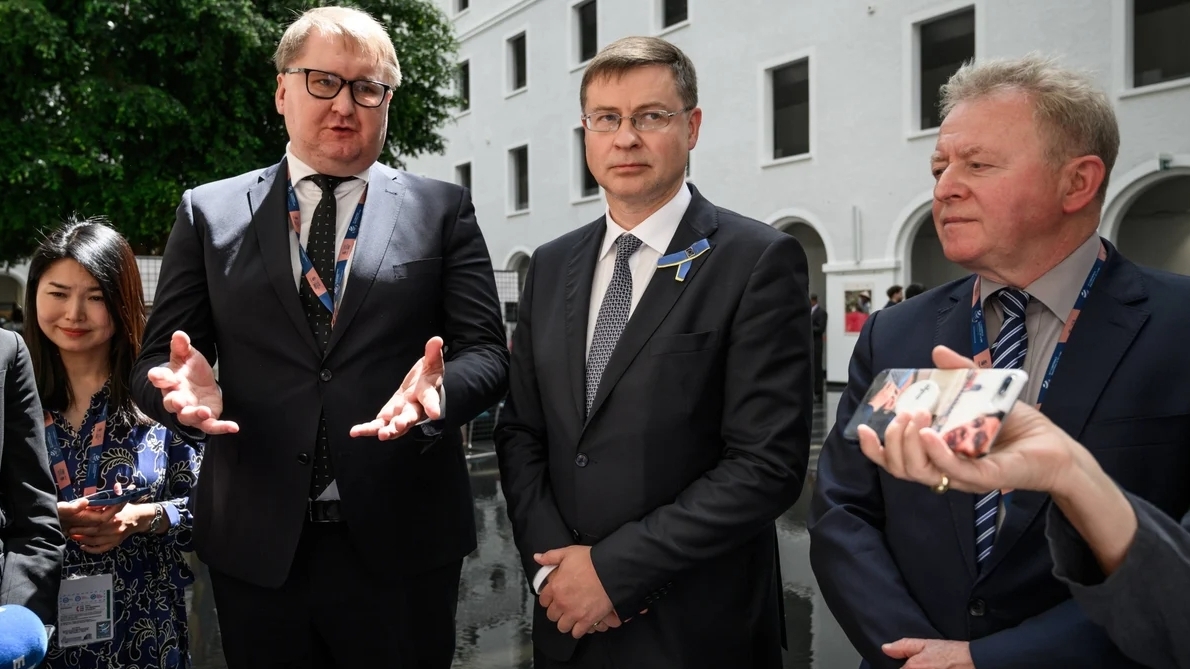The Ministry of Economy of Ukraine is counting on "good news" regarding the new Ukrainian grain export mechanism
Estimated reading time: 4 minutes
Deputy Minister of Economy Taras Kachka said that this is a "key moment" for Ukraine to reach an agreement with Poland on grain exports. The situation with the ban on grain imports to Poland.

Deputy Minister of Economy Taras Kachka
Deputy Minister of Economy Taras Kachka said that this is a “key moment” for Ukraine to reach an agreement with Poland on grain exports.
“The situation with the ban on grain imports to Poland and the other four EU countries began in April last year. Initially, Poland introduced a national ban. In May, it was transferred to the level of the European Commission, and in June it was updated due to changes in regulations, it was valid until September 15 for 5 Member States, and on September 15, it was agreed that this mechanism would be replaced by another control mechanism, which will already be controlled by Ukraine together with with those of member states. It is important for us that this agreement is implemented," the official said.
According to him, "Ukraine's main interest is to lift the national bans of three member states".
“We thank Romania and Bulgaria for accepting this situation and not introducing national bans. Instead, there will be a mechanism for joint verification of the approval of deliveries of these four goods (cereals – editor's note) to these 5 Member States together with them, "Kachka continued
The deputy minister noted that "this is a very complex trade mechanism, so there will not be a significant flow of goods."
“It is important that we are able to show what the demand really is, who is really buying, and involve the governments of the Member States in assessing these supplies. This is a slightly more complicated mechanism, but in fact it is close to the fact that trade has been controlled for some time to show that the ban is unnecessary, that it can be slowly lifted and trade normalization returns. Since it was announced on the last day of the ban, it was not so sharp reaction from Poland and other countries. We are very happy that both countries immediately reacted normally. We are currently working with them to create a two-way communication mechanism. We also cooperate with all other countries, with the European Union Commission," the official emphasized.
“This is our main tool. The WTO lawsuit is just one element of this situation and our reaction to the appearance of national bans. We believe that the national ban was also a kind of reaction from the Member States, so it is actually a secondary issue in the work we are doing. Ideally, we would like to avoid long confrontations at the WTO. We simply want to reach an agreement with our neighbors. That is why this is a priority for us and we are doing everything to ensure this," added the deputy minister.
Kachka expressed hope that "there will be more good news this week" about Ukraine launching a mechanism that allows it to avoid formal and total bans on bilateral trade.
Imports of Ukrainian grain have been suspended
After the full-scale invasion of the Russian Federation, Ukrainian ports on the Black Sea were blocked, which forced Ukraine, one of the largest grain exporters in the world, to look for alternative supply routes, including: through Poland and Romania.
In 2022, Poland and Romania jointly promoted grain exports from Ukraine. The additional supply of grain in their markets put pressure on farmers because it affected prices and grain storage capacity. Local protests against governments took place in two countries.
According to the European Commission, farmers from Poland, Romania, Hungary, Bulgaria, and Slovakia lost EUR 417 million due to the inflow of cheaper Ukrainian grain to their markets.
On May 2, the European Commission temporarily restricted the sale of wheat, corn, rapeseed, and sunflower of Ukrainian origin in Bulgaria, Hungary, Poland, Romania, and Slovakia.
On June 5, the European Commission extended restrictions on the import of Ukrainian agricultural products until September 15, 2023. The restrictions concerned the import of wheat, corn, rapeseed, and sunflower seeds from Ukraine. At the same time, the scope of application of these measures to these products was reduced from 17 to 6 tariff lines.
On September 15, the European Commission did not extend the ban on imports of Ukrainian grain to EU member states neighboring Ukraine.
Subsequently, Slovakia, Poland, and Hungary unilaterally banned the import of agricultural products from Ukraine.
On September 18, Minister of Economy Yulia Svyridenko announced that Ukraine had filed a lawsuit in the WTO against three countries that, despite the EC's decision to lift restrictions, continued to ban the import of Ukrainian grain.



